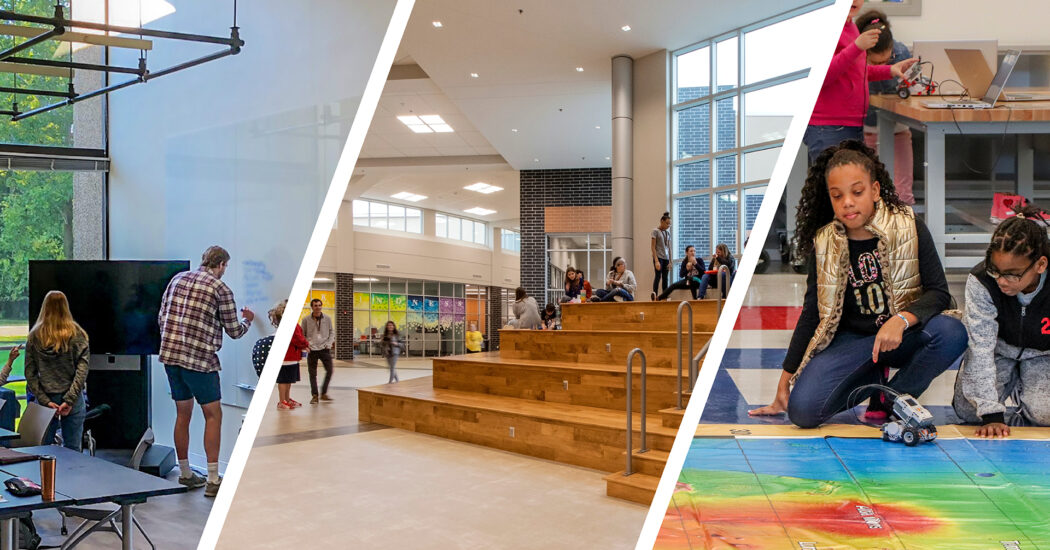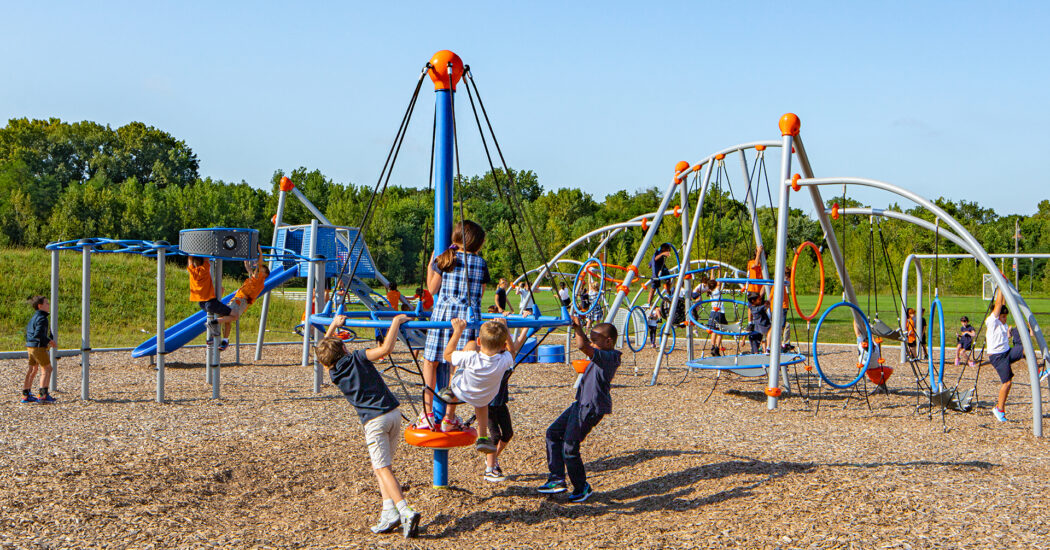What is a WELL Building?
-
Category
Innovation -
Posted By
Laura Hardin -
Posted On
Apr 14, 2020
For years, LEED (Leadership in Energy and Environmental Design) and has been the primary standard against which building projects have been measured. You may own, operate, or work in a LEED-certified facility. If not, you likely frequent one on a regular basis.
LEED certification continues to be well respected and widely sought after. However, it is not the only building standard program available.
Another program that is gaining popularity for its focus on human health is the WELL Building Standard™.
About the WELL Building Standard
We spend an average of 90 percent of our time indoors. WELL believes that because our built environment is such a big part of our lives, buildings should function as caretakers. The program promotes designing spaces that improve occupant health and well-being, rather than detract from it.
Launched in 2014, the global program is administered by the International WELL Building Institute (IWBI). It is now in its second iteration, dubbed WELLv2.
WELLv2 outlines 11 concepts that contribute to a successful building:
[av_one_third first min_height=” vertical_alignment=” space=” custom_margin=” margin=’0px’ row_boxshadow=” row_boxshadow_color=” row_boxshadow_width=’10’ link=” linktarget=” link_hover=” padding=’0px’ highlight=” highlight_size=” border=” border_color=” radius=’0px’ column_boxshadow=” column_boxshadow_color=” column_boxshadow_width=’10’ background=’bg_color’ background_color=” background_gradient_color1=” background_gradient_color2=” background_gradient_direction=’vertical’ src=” background_position=’top left’ background_repeat=’no-repeat’ animation=” mobile_breaking=” mobile_display=” av_uid=’av-18f98cc’]
[av_textblock size=” font_color=” color=” av-medium-font-size=” av-small-font-size=” av-mini-font-size=” av_uid=’av-k907h61c’ custom_class=” admin_preview_bg=”]
Air
Maintaining a high level of indoor air quality and minimizing exposure of occupants to contaminants
[/av_textblock]
[/av_one_third]
[av_one_third min_height=” vertical_alignment=” space=” custom_margin=” margin=’0px’ row_boxshadow=” row_boxshadow_color=” row_boxshadow_width=’10’ link=” linktarget=” link_hover=” padding=’0px’ highlight=” highlight_size=” border=” border_color=” radius=’0px’ column_boxshadow=” column_boxshadow_color=” column_boxshadow_width=’10’ background=’bg_color’ background_color=” background_gradient_color1=” background_gradient_color2=” background_gradient_direction=’vertical’ src=” background_position=’top left’ background_repeat=’no-repeat’ animation=” mobile_breaking=” mobile_display=” av_uid=’av-432fb0′]
[av_textblock size=” font_color=” color=” av-medium-font-size=” av-small-font-size=” av-mini-font-size=” av_uid=’av-k907hf91′ custom_class=” admin_preview_bg=”]
Water
Ensuring access to clean water for occupants, as well as appropriate water management for building operation and protection
[/av_textblock]
[/av_one_third]
[av_one_third min_height=” vertical_alignment=” space=” custom_margin=” margin=’0px’ row_boxshadow=” row_boxshadow_color=” row_boxshadow_width=’10’ link=” linktarget=” link_hover=” padding=’0px’ highlight=” highlight_size=” border=” border_color=” radius=’0px’ column_boxshadow=” column_boxshadow_color=” column_boxshadow_width=’10’ background=’bg_color’ background_color=” background_gradient_color1=” background_gradient_color2=” background_gradient_direction=’vertical’ src=” background_position=’top left’ background_repeat=’no-repeat’ animation=” mobile_breaking=” mobile_display=” av_uid=’av-3p1o0c’]
[av_textblock size=” font_color=” color=” av-medium-font-size=” av-small-font-size=” av-mini-font-size=” av_uid=’av-k907hr6b’ custom_class=” admin_preview_bg=”]
Nourishment
Creating food environments that promote good nutrition and healthy choices for occupants
[/av_textblock]
[/av_one_third]
[av_one_third first min_height=” vertical_alignment=” space=” custom_margin=” margin=’0px’ row_boxshadow=” row_boxshadow_color=” row_boxshadow_width=’10’ link=” linktarget=” link_hover=” padding=’0px’ highlight=” highlight_size=” border=” border_color=” radius=’0px’ column_boxshadow=” column_boxshadow_color=” column_boxshadow_width=’10’ background=’bg_color’ background_color=” background_gradient_color1=” background_gradient_color2=” background_gradient_direction=’vertical’ src=” background_position=’top left’ background_repeat=’no-repeat’ animation=” mobile_breaking=” mobile_display=” av_uid=’av-3gzvws’]
[av_textblock size=” font_color=” color=” av-medium-font-size=” av-small-font-size=” av-mini-font-size=” av_uid=’av-k907hyrr’ custom_class=” admin_preview_bg=”]
Light
Using natural and electric lighting strategies that positively impact visual, mental, and physical health for improved mood and productivity
[/av_textblock]
[/av_one_third]
[av_one_third min_height=” vertical_alignment=” space=” custom_margin=” margin=’0px’ row_boxshadow=” row_boxshadow_color=” row_boxshadow_width=’10’ link=” linktarget=” link_hover=” padding=’0px’ highlight=” highlight_size=” border=” border_color=” radius=’0px’ column_boxshadow=” column_boxshadow_color=” column_boxshadow_width=’10’ background=’bg_color’ background_color=” background_gradient_color1=” background_gradient_color2=” background_gradient_direction=’vertical’ src=” background_position=’top left’ background_repeat=’no-repeat’ animation=” mobile_breaking=” mobile_display=” av_uid=’av-u9z970′]
[av_textblock size=” font_color=” color=” av-medium-font-size=” av-small-font-size=” av-mini-font-size=” av_uid=’av-k907i7bo’ custom_class=” admin_preview_bg=”]
Movement
Designing spaces that encourage physical activity and reduce sedentary behavior in occupants for improved health
[/av_textblock]
[/av_one_third]
[av_one_third min_height=” vertical_alignment=” space=” custom_margin=” margin=’0px’ row_boxshadow=” row_boxshadow_color=” row_boxshadow_width=’10’ link=” linktarget=” link_hover=” padding=’0px’ highlight=” highlight_size=” border=” border_color=” radius=’0px’ column_boxshadow=” column_boxshadow_color=” column_boxshadow_width=’10’ background=’bg_color’ background_color=” background_gradient_color1=” background_gradient_color2=” background_gradient_direction=’vertical’ src=” background_position=’top left’ background_repeat=’no-repeat’ animation=” mobile_breaking=” mobile_display=” av_uid=’av-qpo4m4′]
[av_textblock size=” font_color=” color=” av-medium-font-size=” av-small-font-size=” av-mini-font-size=” av_uid=’av-k907iecv’ custom_class=” admin_preview_bg=”]
Thermal Comfort
Establishing proper HVAC system design and controls to ensure comfortable temperature and ventilation for occupants
[/av_textblock]
[/av_one_third]
[av_one_third first min_height=” vertical_alignment=” space=” custom_margin=” margin=’0px’ row_boxshadow=” row_boxshadow_color=” row_boxshadow_width=’10’ link=” linktarget=” link_hover=” padding=’0px’ highlight=” highlight_size=” border=” border_color=” radius=’0px’ column_boxshadow=” column_boxshadow_color=” column_boxshadow_width=’10’ background=’bg_color’ background_color=” background_gradient_color1=” background_gradient_color2=” background_gradient_direction=’vertical’ src=” background_position=’top left’ background_repeat=’no-repeat’ animation=” mobile_breaking=” mobile_display=” av_uid=’av-o7jj24′]
[av_textblock size=” font_color=” color=” av-medium-font-size=” av-small-font-size=” av-mini-font-size=” av_uid=’av-k907imds’ custom_class=” admin_preview_bg=”]
Sound
Mitigating noise for improved occupant acoustical comfort, focus, and productivity
[/av_textblock]
[/av_one_third]
[av_one_third min_height=” vertical_alignment=” space=” custom_margin=” margin=’0px’ row_boxshadow=” row_boxshadow_color=” row_boxshadow_width=’10’ link=” linktarget=” link_hover=” padding=’0px’ highlight=” highlight_size=” border=” border_color=” radius=’0px’ column_boxshadow=” column_boxshadow_color=” column_boxshadow_width=’10’ background=’bg_color’ background_color=” background_gradient_color1=” background_gradient_color2=” background_gradient_direction=’vertical’ src=” background_position=’top left’ background_repeat=’no-repeat’ animation=” mobile_breaking=” mobile_display=” av_uid=’av-l2ao30′]
[av_textblock size=” font_color=” color=” av-medium-font-size=” av-small-font-size=” av-mini-font-size=” av_uid=’av-k907itlq’ custom_class=” admin_preview_bg=”]
Materials
Ensuring building materials, cleaning products, building waste, and outdoor features are free of toxic ingredients
[/av_textblock]
[/av_one_third]
[av_one_third min_height=” vertical_alignment=” space=” custom_margin=” margin=’0px’ row_boxshadow=” row_boxshadow_color=” row_boxshadow_width=’10’ link=” linktarget=” link_hover=” padding=’0px’ highlight=” highlight_size=” border=” border_color=” radius=’0px’ column_boxshadow=” column_boxshadow_color=” column_boxshadow_width=’10’ background=’bg_color’ background_color=” background_gradient_color1=” background_gradient_color2=” background_gradient_direction=’vertical’ src=” background_position=’top left’ background_repeat=’no-repeat’ animation=” mobile_breaking=” mobile_display=” av_uid=’av-h2rhkc’]
[av_textblock size=” font_color=” color=” av-medium-font-size=” av-small-font-size=” av-mini-font-size=” av_uid=’av-k907j0ao’ custom_class=” admin_preview_bg=”]
Mind
Using the built environment to positively affect mental and emotional health, through things like indoor natural features and spaces for destressing
[/av_textblock]
[/av_one_third]
[av_one_third first min_height=” vertical_alignment=” space=” custom_margin=” margin=’0px’ row_boxshadow=” row_boxshadow_color=” row_boxshadow_width=’10’ link=” linktarget=” link_hover=” padding=’0px’ highlight=” highlight_size=” border=” border_color=” radius=’0px’ column_boxshadow=” column_boxshadow_color=” column_boxshadow_width=’10’ background=’bg_color’ background_color=” background_gradient_color1=” background_gradient_color2=” background_gradient_direction=’vertical’ src=” background_position=’top left’ background_repeat=’no-repeat’ animation=” mobile_breaking=” mobile_display=” av_uid=’av-dokhd8′]
[av_textblock size=” font_color=” color=” av-medium-font-size=” av-small-font-size=” av-mini-font-size=” av_uid=’av-k907j86n’ custom_class=” admin_preview_bg=”]
Community
Creating a foundation for equitable and inclusive environments through space design
[/av_textblock]
[/av_one_third]
[av_one_third min_height=” vertical_alignment=” space=” custom_margin=” margin=’0px’ row_boxshadow=” row_boxshadow_color=” row_boxshadow_width=’10’ link=” linktarget=” link_hover=” padding=’0px’ highlight=” highlight_size=” border=” border_color=” radius=’0px’ column_boxshadow=” column_boxshadow_color=” column_boxshadow_width=’10’ background=’bg_color’ background_color=” background_gradient_color1=” background_gradient_color2=” background_gradient_direction=’vertical’ src=” background_position=’top left’ background_repeat=’no-repeat’ animation=” mobile_breaking=” mobile_display=” av_uid=’av-b0x718′]
[/av_one_third][av_one_third min_height=” vertical_alignment=” space=” custom_margin=” margin=’0px’ row_boxshadow=” row_boxshadow_color=” row_boxshadow_width=’10’ link=” linktarget=” link_hover=” padding=’0px’ highlight=” highlight_size=” border=” border_color=” radius=’0px’ column_boxshadow=” column_boxshadow_color=” column_boxshadow_width=’10’ background=’bg_color’ background_color=” background_gradient_color1=” background_gradient_color2=” background_gradient_direction=’vertical’ src=” background_position=’top left’ background_repeat=’no-repeat’ animation=” mobile_breaking=” mobile_display=” av_uid=’av-kdlho’]
[av_textblock size=” font_color=” color=” av-medium-font-size=” av-small-font-size=” av-mini-font-size=” av_uid=’av-k907jgub’ custom_class=” admin_preview_bg=”]
Innovation
Incorporating innovative design features that go beyond current WELL standards
[/av_textblock]
[/av_one_third]
[av_one_full first min_height=” vertical_alignment=” space=” custom_margin=” margin=’0px’ row_boxshadow=” row_boxshadow_color=” row_boxshadow_width=’10’ link=” linktarget=” link_hover=” padding=’0px’ highlight=” highlight_size=” border=” border_color=” radius=’0px’ column_boxshadow=” column_boxshadow_color=” column_boxshadow_width=’10’ background=’bg_color’ background_color=” background_gradient_color1=” background_gradient_color2=” background_gradient_direction=’vertical’ src=” background_position=’top left’ background_repeat=’no-repeat’ animation=” mobile_breaking=” mobile_display=” av_uid=’av-2l7jx8′]
[av_textblock size=” font_color=” color=” av-medium-font-size=” av-small-font-size=” av-mini-font-size=” av_uid=’av-k907ft9v’ custom_class=” admin_preview_bg=”]
WELL vs. LEED
Both the WELL and LEED building programs have their benefits and are appropriate for a variety of types of buildings and organizations. In fact, WELL is certified by the Green Business Certification Incorporation (GBCI), which also administers the LEED program.
As we’ve discussed, WELL focuses primarily on the impact a building has on the health and comfort of people. It awards certifications at three levels: Silver, Gold, and Platinum. Level awarded is based on scoring in the areas listed above.
LEED’s focus is primarily on sustainability, efficiency, and environmental impact. It awards certification at four levels: Certified, Silver, Gold, and Platinum. Level awarded is based on scoring in areas such as energy usage, water management, construction materials, indoor air quality, and waste control.
Some organizations attain certifications from both LEED and WELL. This helps ensure a truly well-rounded building with a holistic design approach. There is also some overlap in program requirements, making it reasonable for many organizations to pursue both certifications.
Also interested in LEED? Learn more in our LEED Certification 101.
[/av_textblock]
[/av_one_full]







